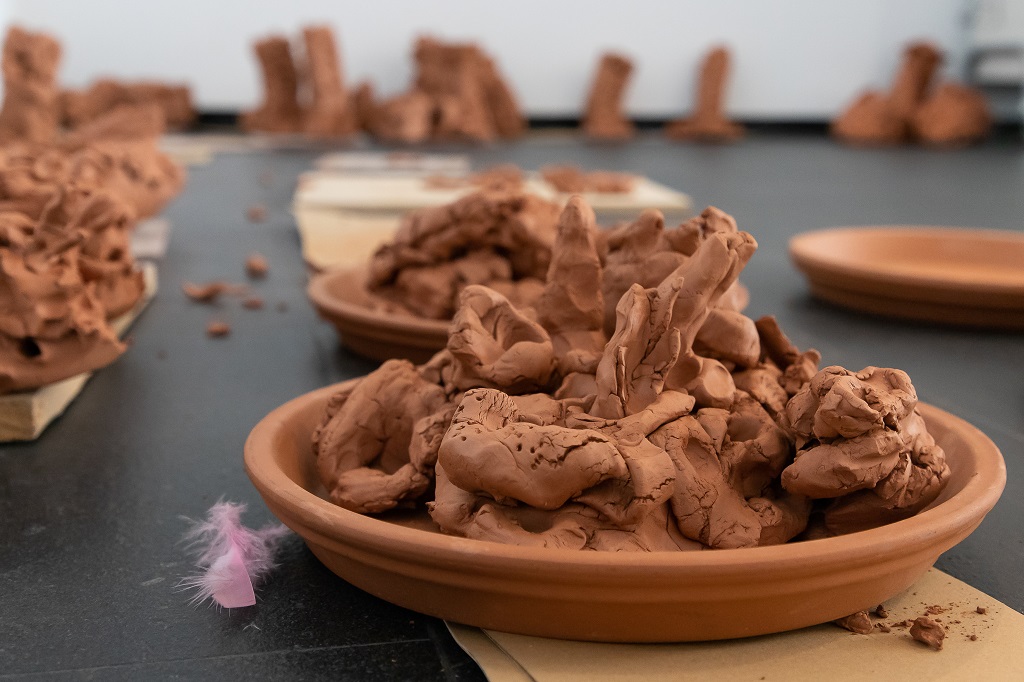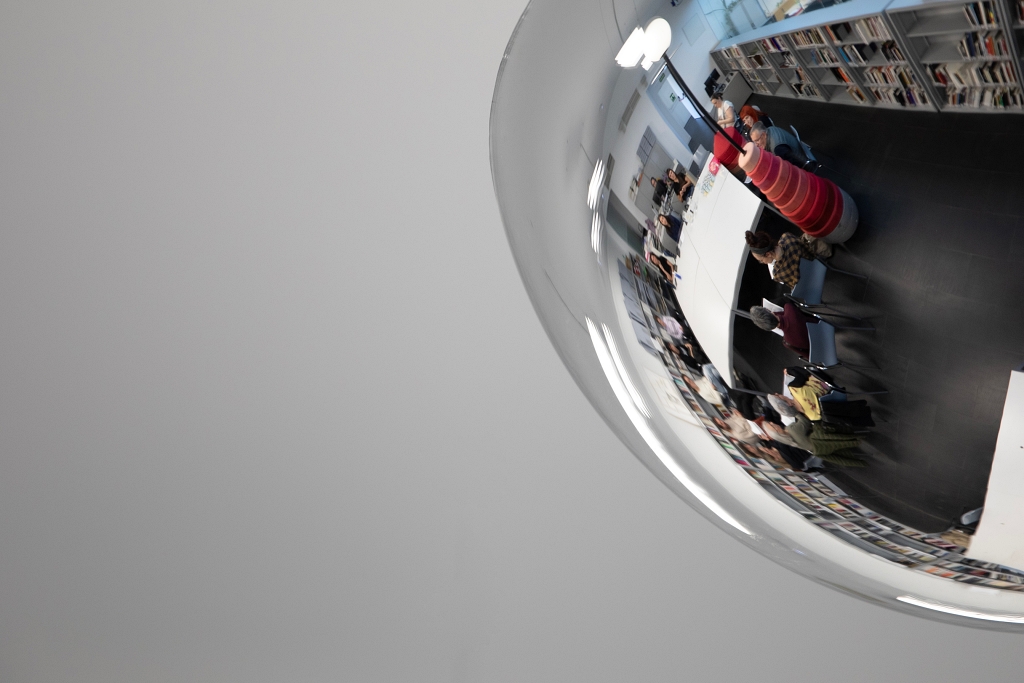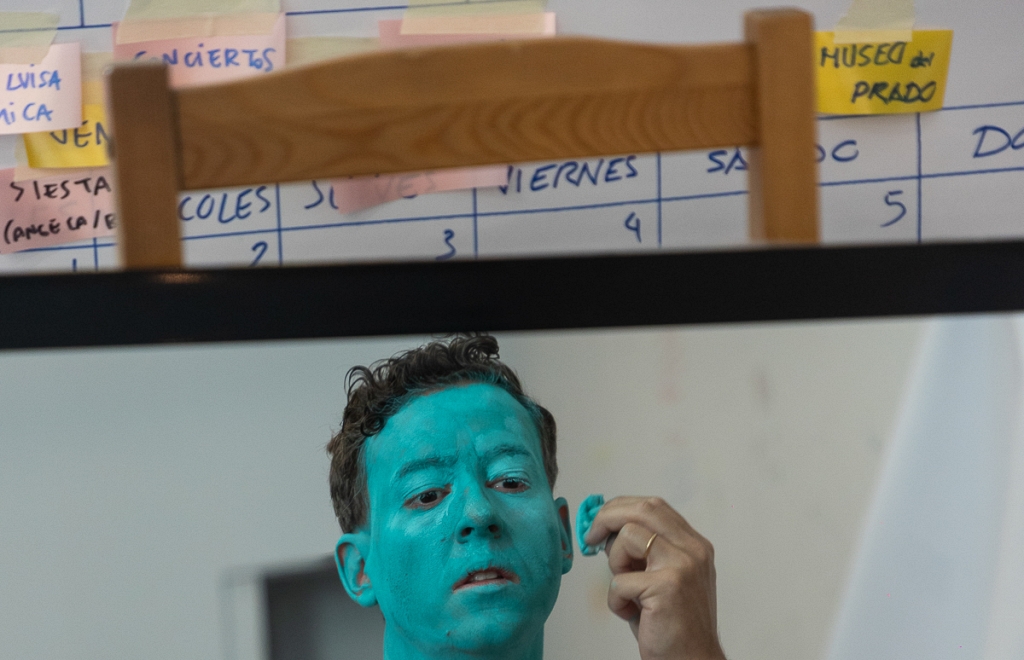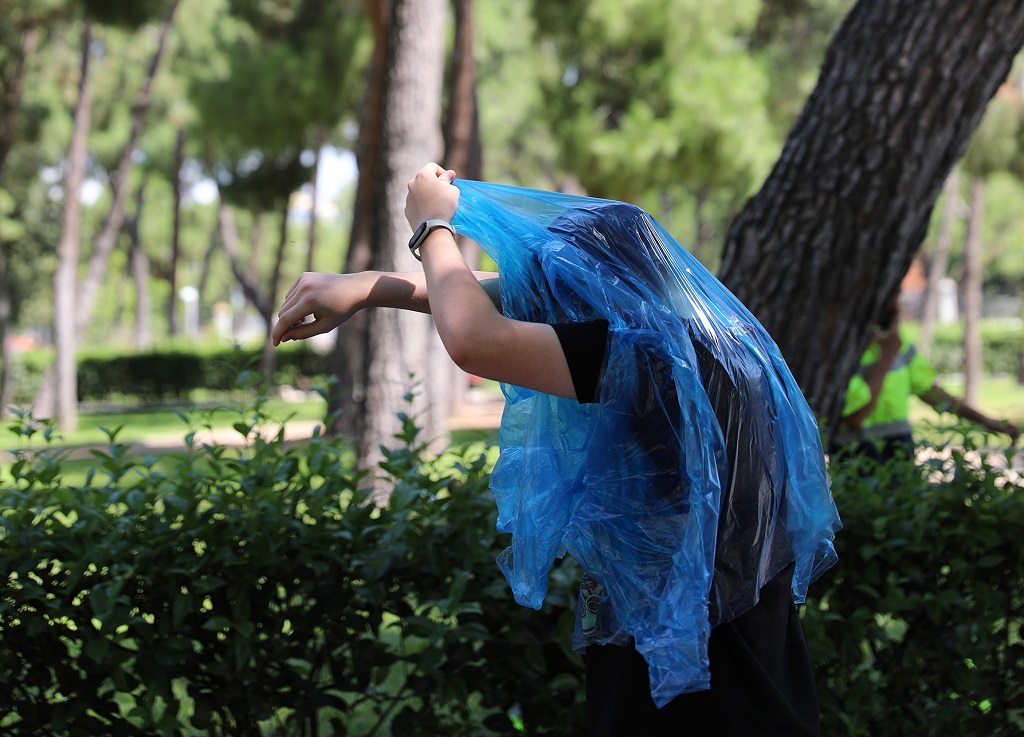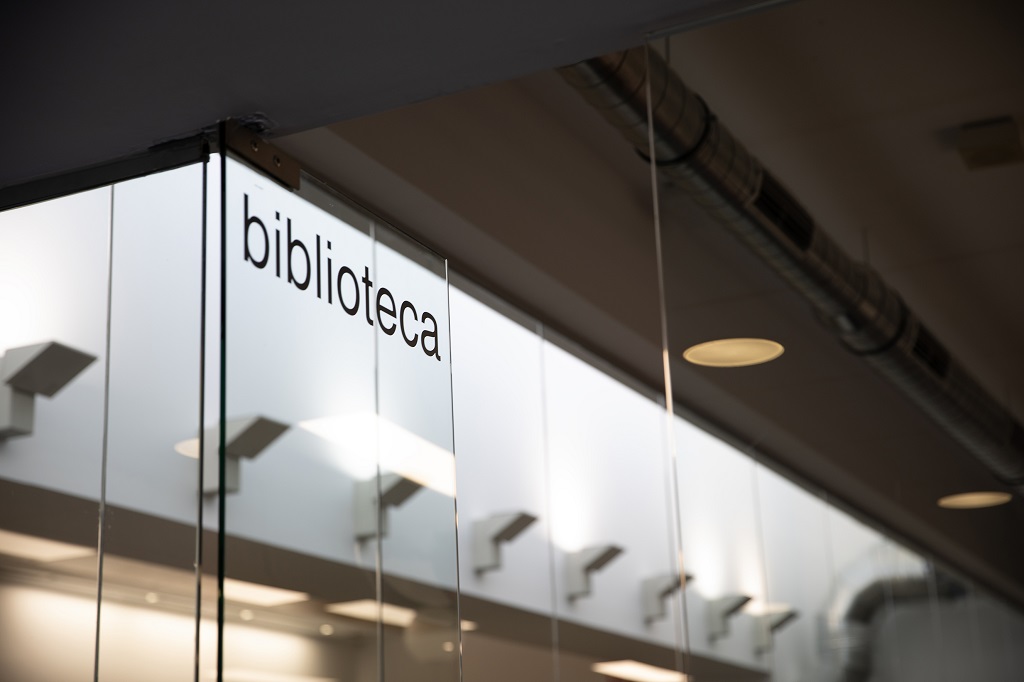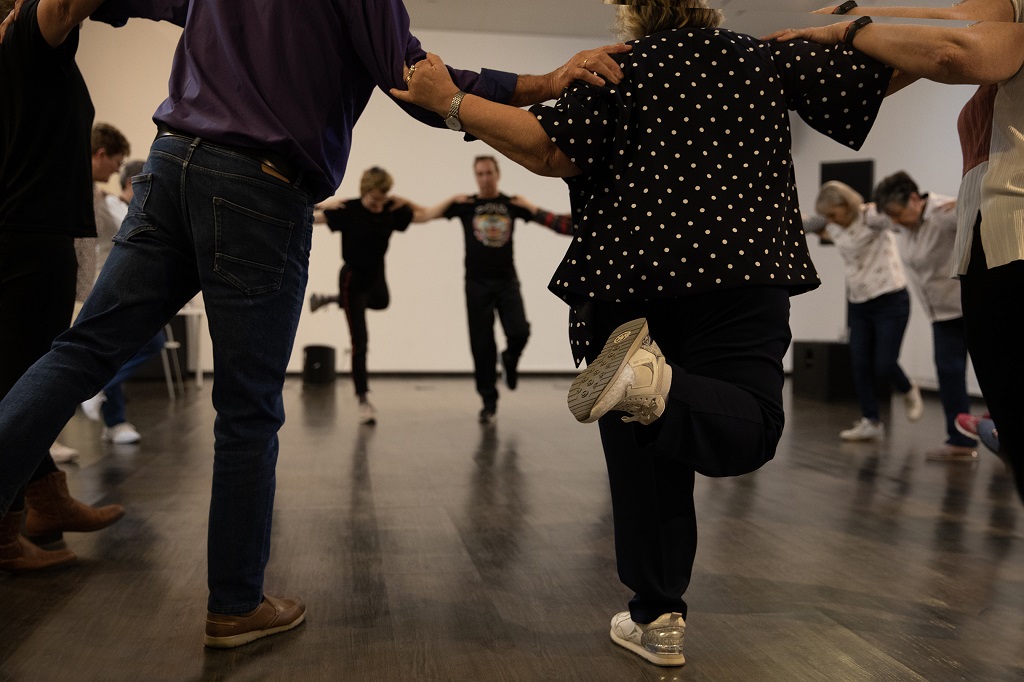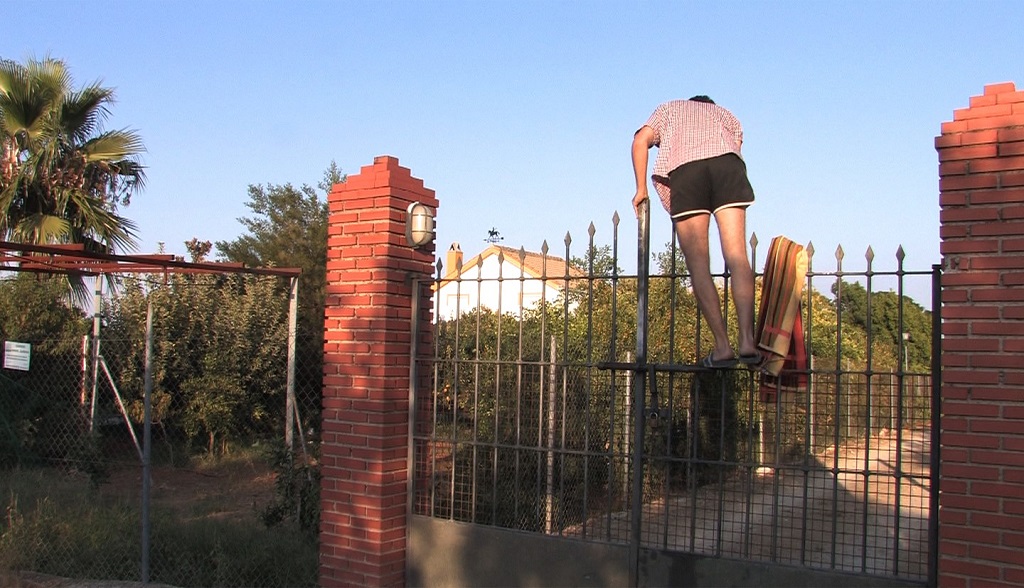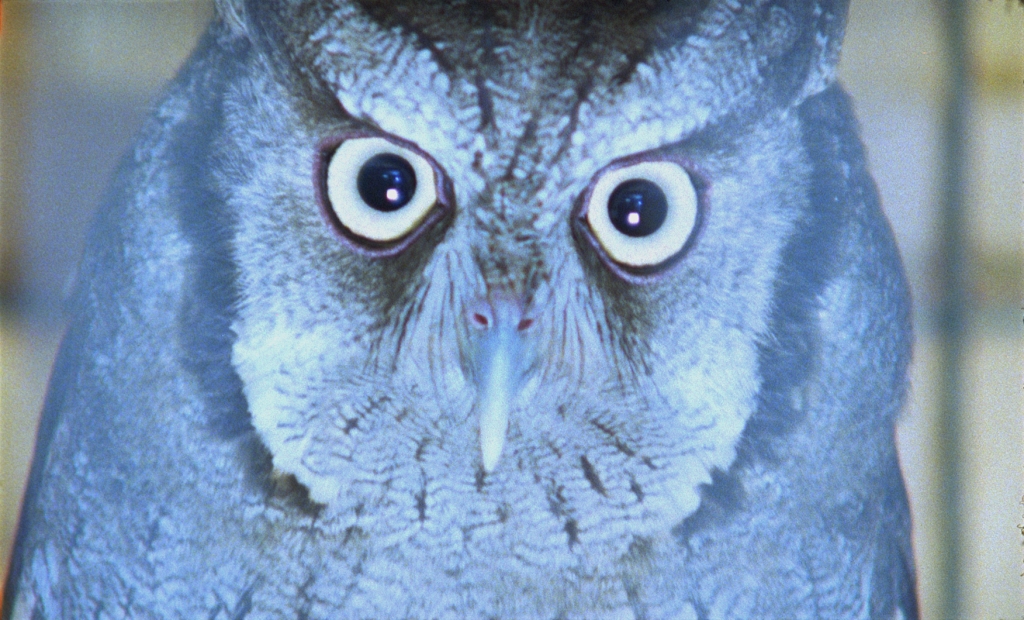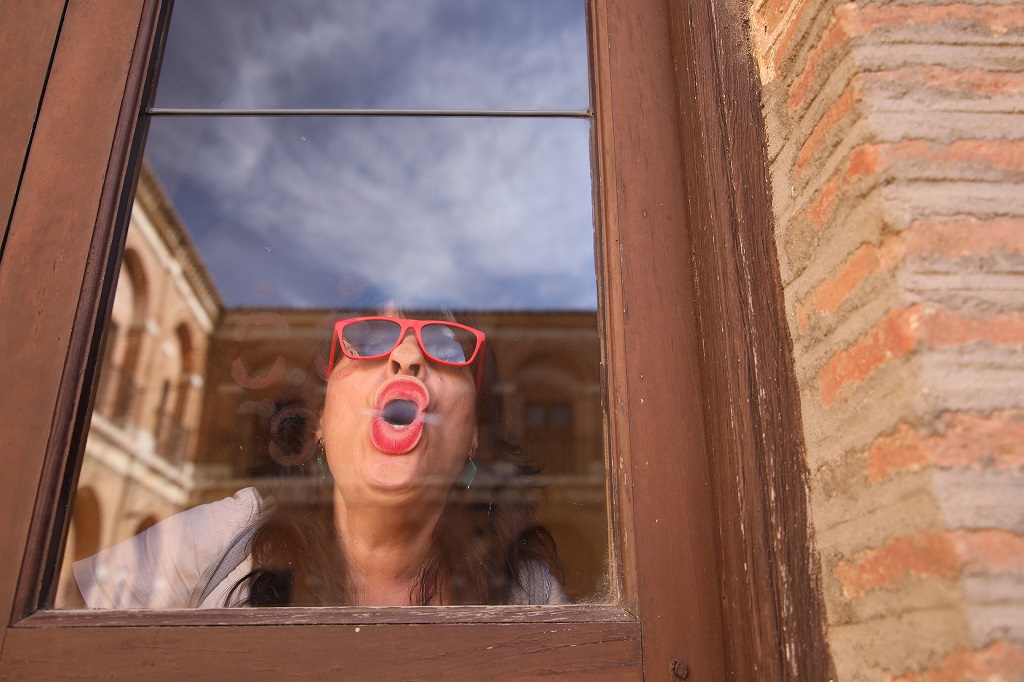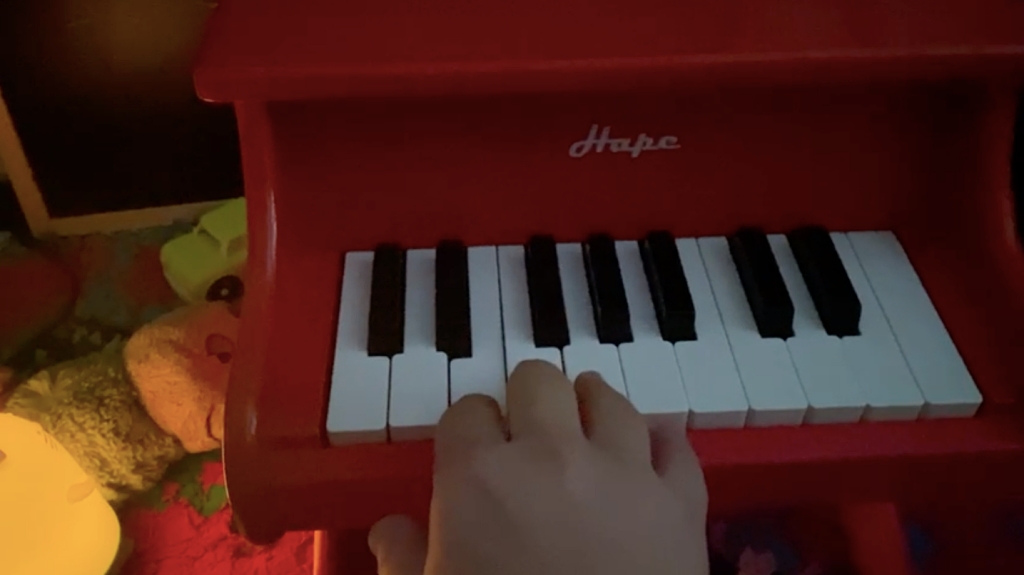Ciudad Sur (‘Southern City’) is a space for shared experimentation launched in 2021 which, taking Móstoles as its starting point, aims to explore the many facets and many riches that generate a sense of belonging in the cities that make up the Madrid’s metropolitan area.
In this third edition, we will approach Móstoles as post-tourist guides, travelling together through a series of architectures composed of layers of time, experiences and lived moments around what we call free time, based on a proposal of shared experimentation in which this dormitory town will become a holiday destination.
Leisure, what we call ‘free time’, is one of the things we desire most, a place where we indulge in experiences - lived or projected – which are associated with enjoyment.
There is a leisure with which we live every day, that which marks the pauses in the flow of daily activity, such as the time we dedicate to sport and its promise of a balanced, healthy, desirable life. But there is also leisure that functions as an escape route, a time and a place where limits are widened: popular festivals, nights out... and of course, the idea of true leisure, and the search for total disconnection: holidays. A long pause that allows us, at least for a while, to pretend to live under another logic, to try to be other people.
As dormitory towns grew, low-cost ‘getaway’ flights multiplied, definitively linking holidays with the idea of travel. To this end, the tourism industry offers us a myriad of destinations to match our dreams and our wallets, deploying a whole travel imaginary in which this desired ‘freedom’ can take shape. A catalogue of beautiful scenes often constructed in contrast to everyday spaces, based on a play of opposites. From urban grey to the infinite blue skies and seas; from the brick of the city to the white of the Costa Brava, or the warm gold of the sun... But never the ‘brown coast’. This ‘coast’ is Madrid’s metropolitan area, which will be the setting for the activities proposed in this programme, where we will reflect on the evolution of the urban, political and social criteria that have built this city’s landscape of leisure infrastructures.
The sessions will take place between October 2023 and May 2024: 3rd of October, 7th of November, 12th of December, 16th of January, 20th of February, 12th of March, 16th of April and 7th of May 2024.
Coordinated by: Irene de Andrés, La Liminal and Estrella Serrano.
Irene de Andrés was born in one of the world’s most desirable destinations - the island of Ibiza - which has inevitably led her to investigate the evolution of the concept of leisure and the very meaning of travel throughout history, from the first settlers to today’s tour operators. Spas, cruise ships and nightclubs are the key settings for the artist who, through film, sculptural pieces and graphic work, creates journeys through time and through different waters, connecting different historical events that make us reflect on the model of tourist consumption, especially designed for the working class.
La Liminal is a cultural mediation collective that investigates the city and uses the urban tour as a tool to analyse public space collectively. Our aim is to experiment with the urban landscape in order to propose new readings that focus on those stories that have been made invisible over time, those we have not sufficiently valued, in order to construct alternative discourses that are based on collective learning and that allow for a re-appropriation of the idea of public space as a common good.
Entrance
Ciudad Sur (‘Southern City’) is a space for shared experimentation in which we will approach Móstoles as post-tourist guides to tour a series of architectures made up of layers of time, experiences and experiences around what we call free time. The dormitory town will become a holiday town.
SOUTHERN CITY. BROWN COAST.
